English allophonies of the day
« previous post | next post »
My original interest in the conversation behind yesterday's post "Our digital god is a CSV file?" was a sociophonetic one. As often noted, spontaneous speech often strays far from dictionary pronunciations, and Elon Musk's side of that conversation is full of interesting examples. A few are documented below.
Let's start with an aspect of this phrase:
that- that will start to
approach human level intelligence
or perhaps exceed it
The sequence "or perhaps" can be approximately rendered in IPA as [opæps]:
…or in eye dialect as "oh paps"…
An r-less "or" is expected, as we can see and hear in his pronunciation of "source":
And the loss of the first-syllable schwa in "perhaps" and the second-syllable /h/ is also common, yielding something like [præps]. But the elision of the /r/ is more puzzling — I wonder whether it was a slip of the tongue, or a standard feature of his dialect or ideolect, or just an extreme onset lenition in fast speech?
A bit later, we get this phrase:
I think it's somewhat ((inevable))-
inevitable that there'll be some amount of open source
and I
And focusing in a bit:
That phrase has three interesting reductions. In the first one, "that" reduces to [ət], so that "-ble that there'll be" turns into "bullet there'll be":
Then the schwa in the first syllable of "amount" becomes a syllabic /m/, so that "some amount" becomes almost "some mount":
Note also that the final /t/ of "amount" is flapped and voiced — I'm not sure whether that's a standard feature of South African English, or something Musk picked up in the U.S.
And finally, "and" in "and I" is reduced to /n/ (as often happens):
Today's last lenition sample is perhaps the most fun:
open source
uh because at least you can see what's going on
In the subsequence "because at least you can see what's going on", "at" survives only as a brief coronal approximant, and the final /st/ of "least" is palatalized by the onset of the following "you can", in which the initial /k/ of "can" becomes a weak velar aproximant.
So "because at least you" becomes something like [kʌzˈliʃ.jəɰən] ≅ "cuz leash yan". (Sorry, I can't find a useful eye-dialect version of the velar approximant…)
The reduced form "because" has been re-lexicalized to the point that people often write "cause" or "cuz". The rest of the reductions, however, are of the kind that are normal in spoken English but are rarely noticed, even by phoneticians:
I hasten to add that these observations are not any kind of criticism of Elon Musk's performance — we could find similar things in recordings of spontaneous speech from any of us, with similar implications for theories of allophonic variation, speech production and perception, and language variation and change.
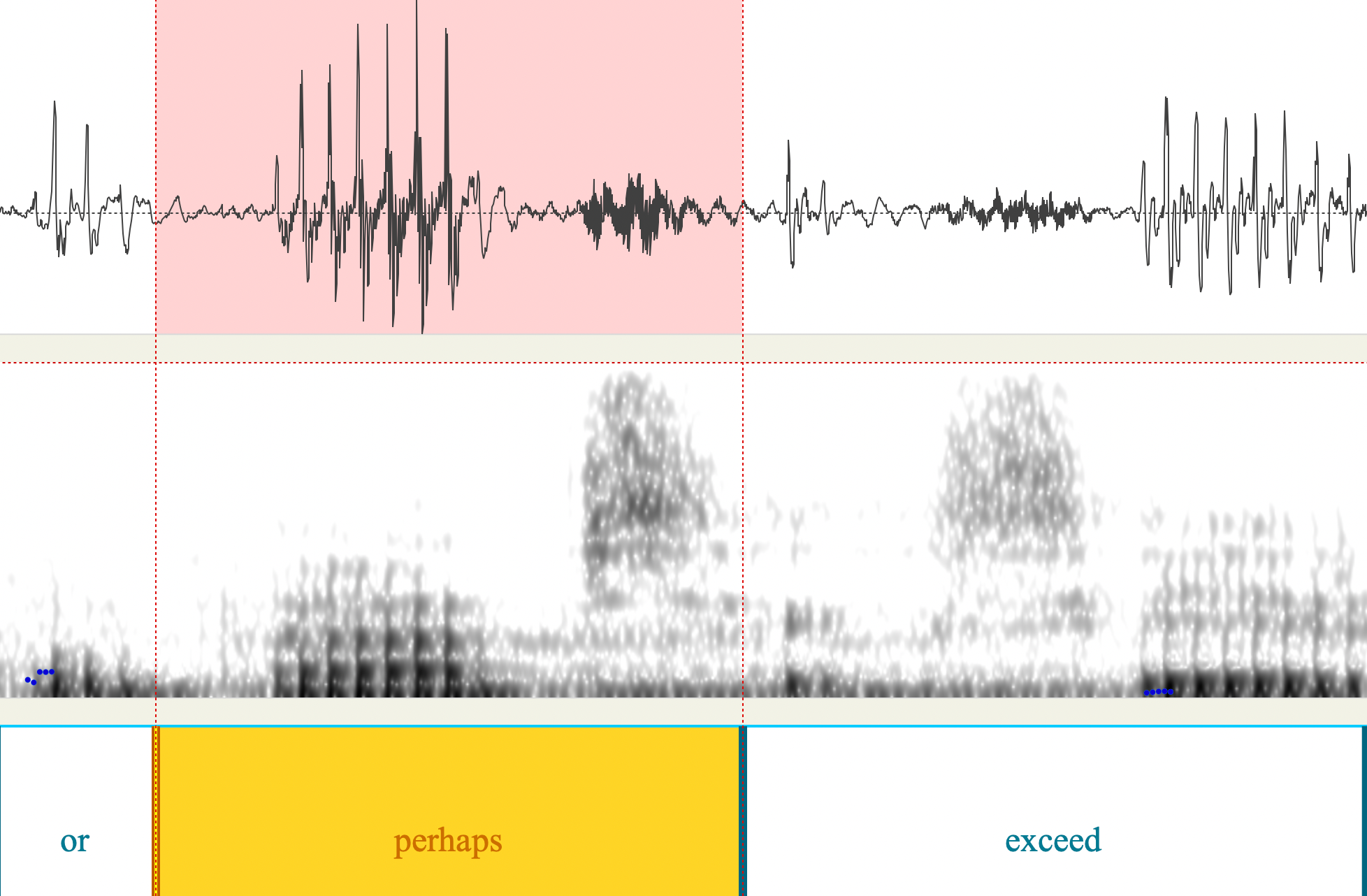
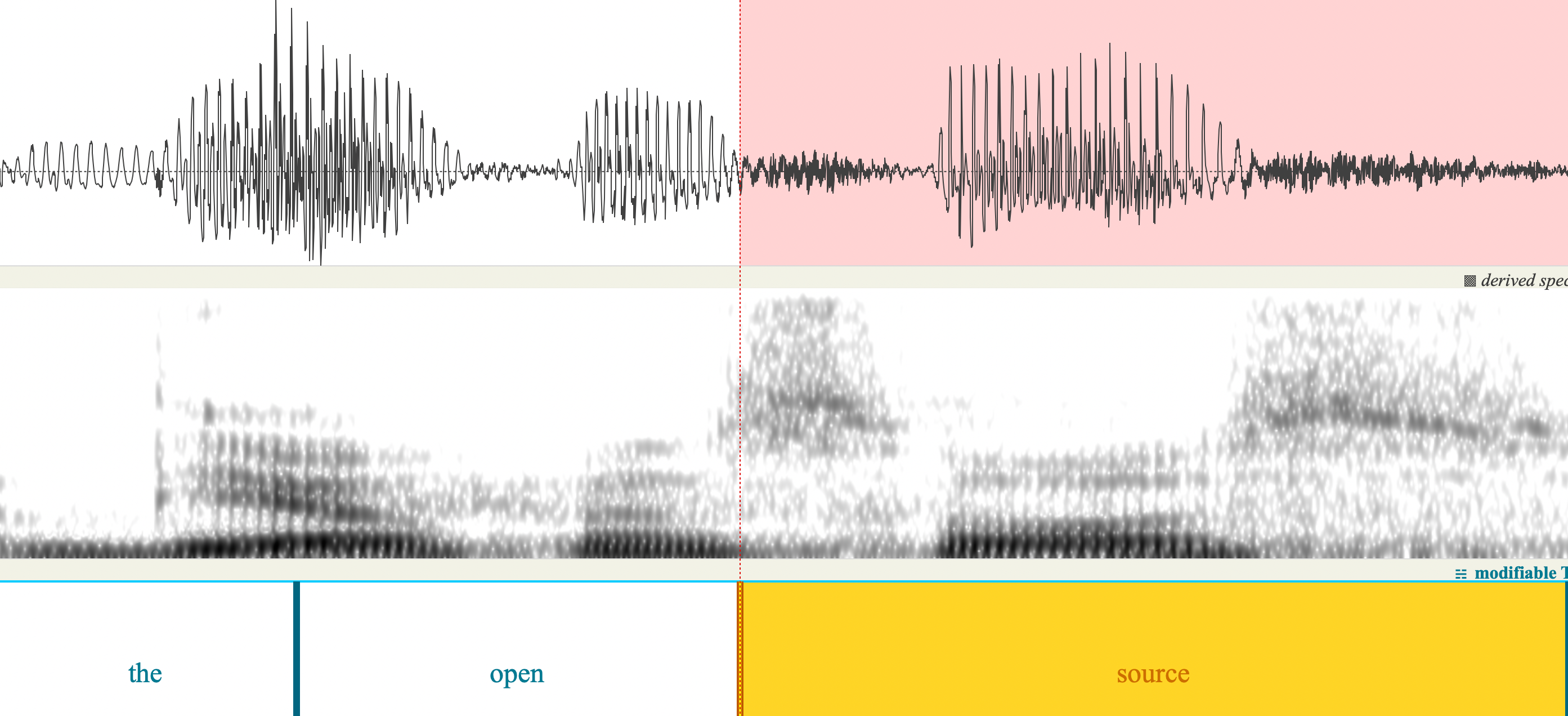
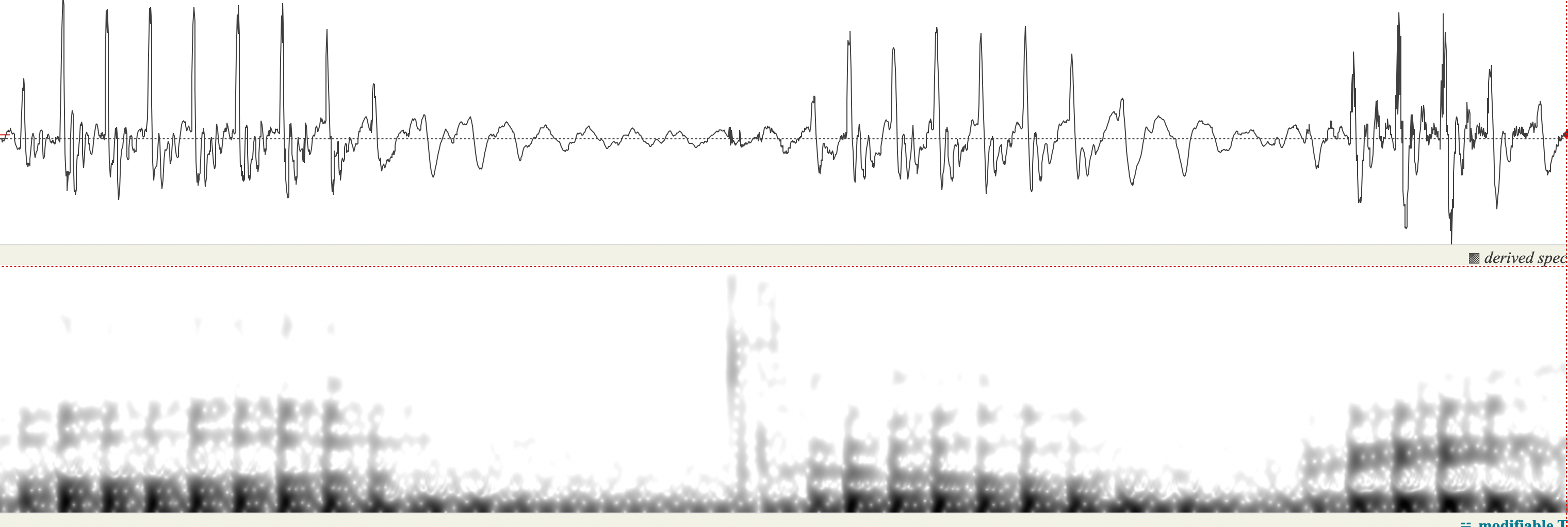
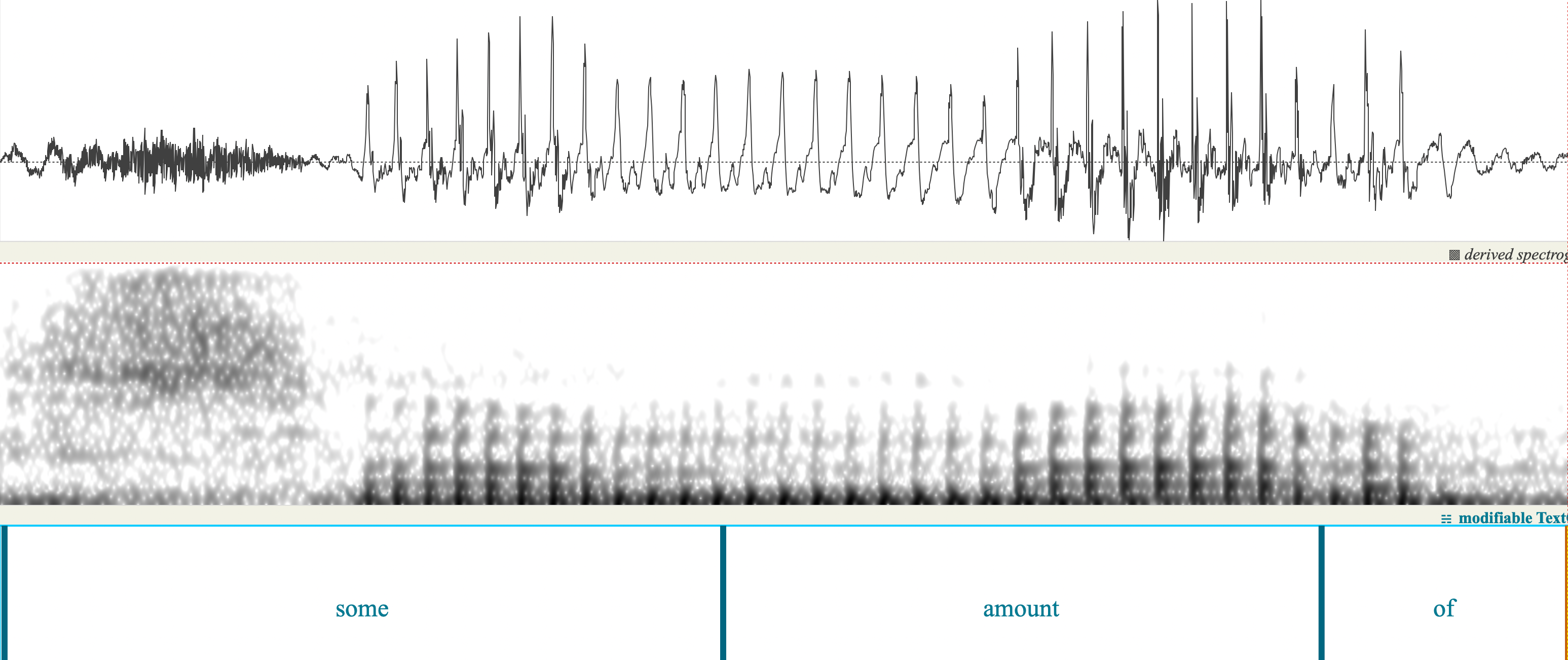
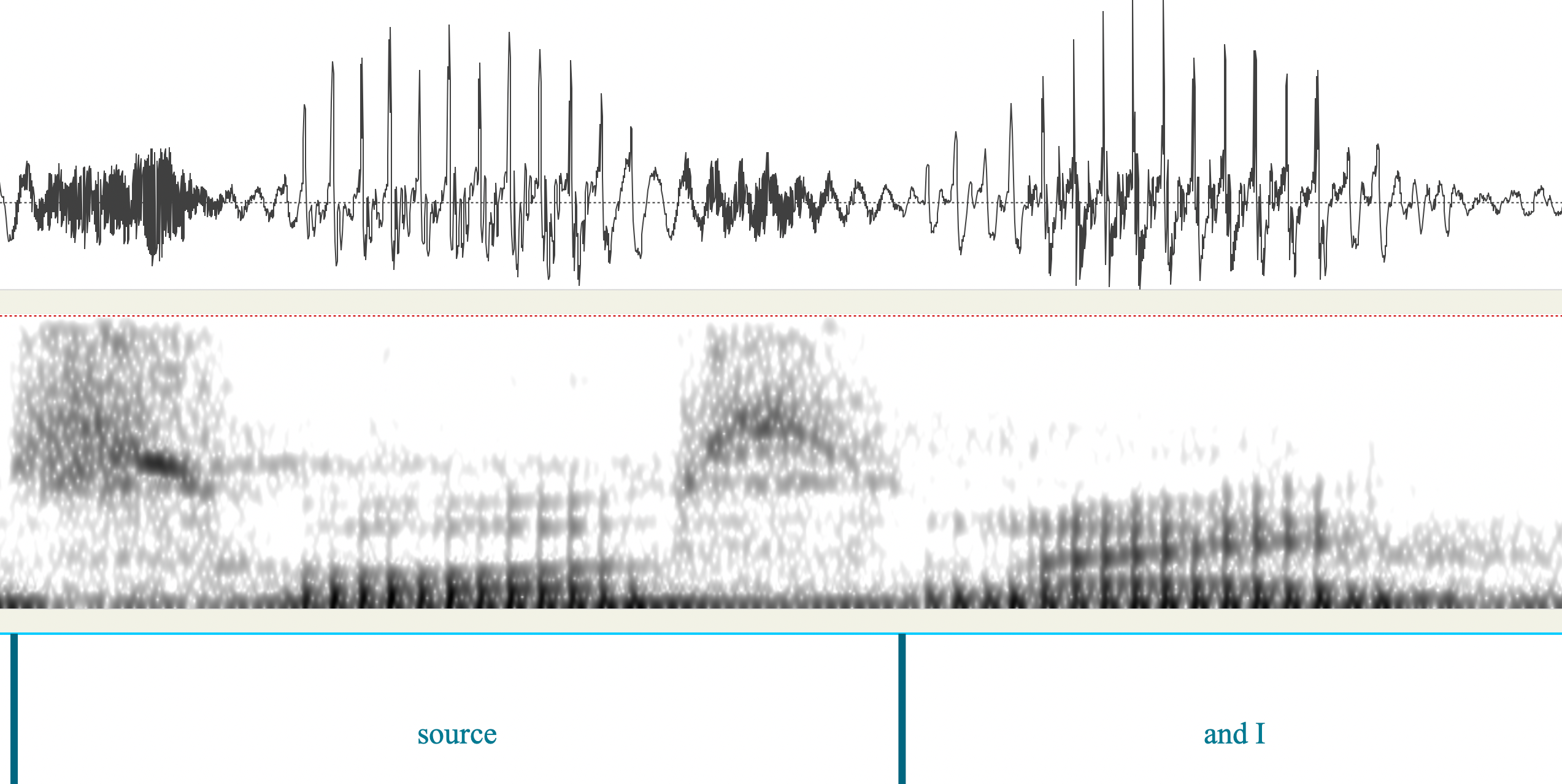
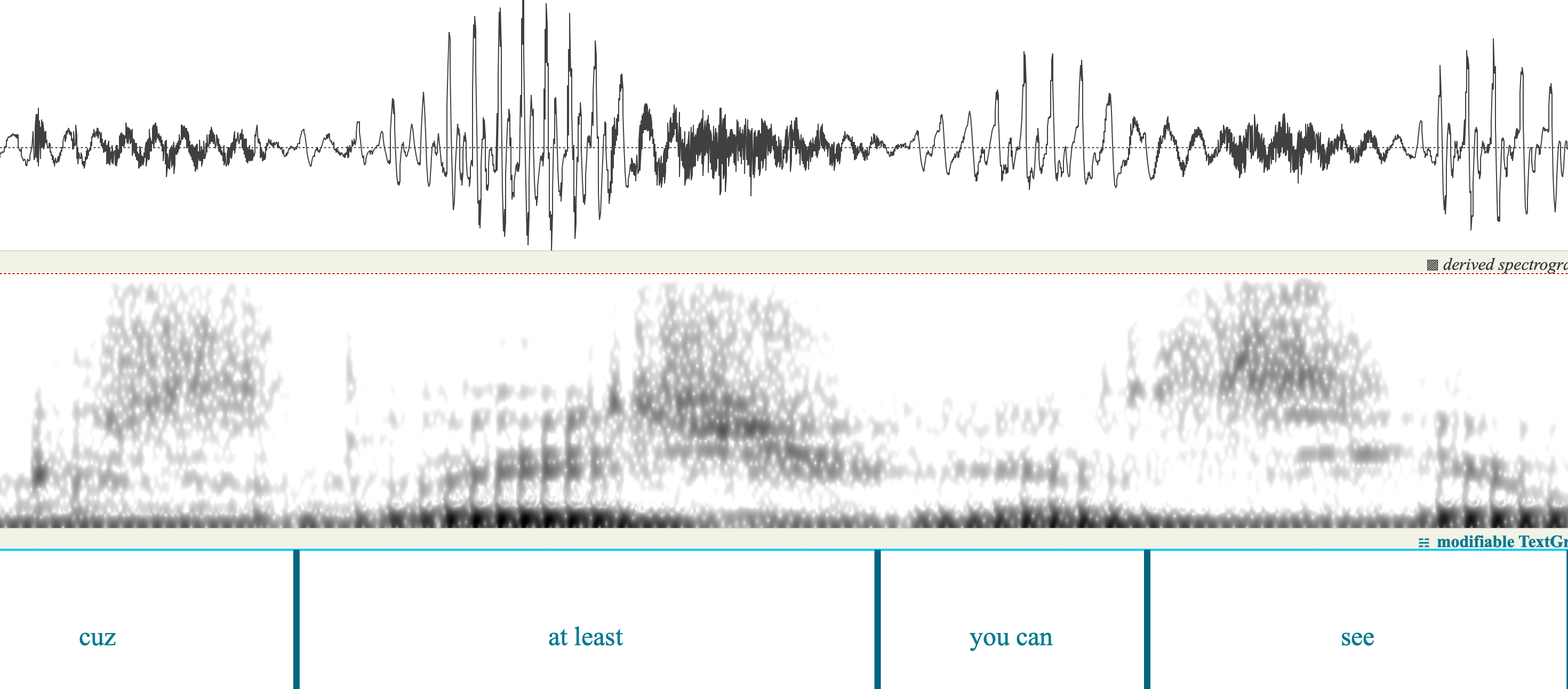
Orin Ed DeNiro said,
March 8, 2024 @ 9:51 am
Considering the focus on last night's State of the Union speech as it might reflect the President's mental acuity, how about a sociophonetic analysis of the several times he seemed to stumble?
Jarek Weckwerth said,
March 8, 2024 @ 9:58 am
Thank you, this is what I'm here for ;)
WRT perhaps, in a non-rhotic accent, there's no /r/ to start with, so Musk's surface form makes more sense. An interesting "phonological" case nonetheless, because you might expect a linking /r/ after the loss of the /h/; but then South African tends to be shy about linking /r/.
pəˈhæps > *pəˈæps > pæps
But then his accent has always struck me as a rather motley mix of influences. And in general I feel he reduces to the point of being difficult to understand more often than would be expected in public appearances. Insufficient articulatory effort ;)
Jarek Weckwerth said,
March 8, 2024 @ 10:08 am
Actually when you slow it down, I have an impression that there are some remnants of the schwa… so the asterisk in my previous post should go ;)
Mark Liberman said,
March 8, 2024 @ 10:20 am
@Jarek Weckwerth: "But then his accent has always struck me as a rather motley mix of influences."
Indeed — though most people's speech reflects a mix of influences, if perhaps less "motley"…
"And in general I feel he reduces to the point of being difficult to understand more often than would be expected in public appearances. Insufficient articulatory effort ;)
The question is, "(in)sufficient" for what purpose(s)? Certainly I see similar reductions in nearly all spontaneous conversations, explanations, and narratives.
David L said,
March 8, 2024 @ 10:57 am
As a non-rhotician of long standing, although of English rather than S African origin, I don't find Musk's hasty pronunciation of 'perhaps' particularly remarkable. I think there's a faint remnant of an 'r' in there (which may be what Jared Weckwerth is also hearing).
Y said,
March 8, 2024 @ 11:20 am
the elision of the /r/ is more puzzling
Well, aight.
Mark Liberman said,
March 8, 2024 @ 12:11 pm
@Orin Ed DeNiro: "Considering the focus on last night's State of the Union speech as it might reflect the President's mental acuity, how about a sociophonetic analysis of the several times he seemed to stumble?"
As opposed to the stumbles of others? If we're going to count, there were actually very few speech errors of any kind in last night's speech. Stumble-counting strikes me as a particularly silly way to compare candidates for public office, but if we went down that road, Donald Trump would not come off well. Nor would many others…
Scott P. said,
March 8, 2024 @ 12:46 pm
Plus Biden has had a stutter all of his life, so his 'stumbles' are nothing that isn't part of his normal speech pattern.
Jarek Weckwerth said,
March 8, 2024 @ 3:54 pm
@ Mark Liberman: After all these years I should have known that in the land of Perfectly Publishable Breakfast Experiments™ one needs to choose their words very carefully, and that writing a comment while cooking is No Excuse. Serves me right! ;)
(1) Motley: Yes, that was judgemental, and yes I do admit I'm not a fan of Mr Musk. But then, for example, the other South African who has achieved some fame in the US, Trevor Noah, is unmistakable in his accent. Does he have other features mixed in? Most probably. But between his back START and central KIT, and the diphthongs, you can make the correct guess within seconds. I could never do that with Musk. So I should have said "comparatively low salience of the diagnostic features of South African English coupled with a comparatively high salience of features (stereo)typically found in other accents".
(2) "(in)sufficient" [articulatory effort] for what purpose(s)? — Again, I was purely subjective: "insufficient articulatory effort for my liking" ;) (In my defence, I work in an L2 setting, and e.g. most of the recordings I choose for my students are probably unnatural in many ways (see below).) So my rewording now would be: "a subjective impression of comparatively low articulatory effort for a public recorded interview". And now that I have listened to larger chunks with your questions in mind, I would say that the creaky-ish voice quality contributes to it quite a bit. (I also had a memory of him having a narrow range of f0, but I don't think that's necessarily the case here.)
[For comparison, just yesterday, I played this interview in class as an example of Australian English. Apples and oranges, but would you agree that the first impression is that there's less reduction and more articulatory effort?]
Jarek Weckwerth said,
March 8, 2024 @ 3:54 pm
Link got lost: https://youtu.be/-KiZRyhPyN0?si=POXJf5np2ckrR17R
Mark Liberman said,
March 8, 2024 @ 4:32 pm
@Jarek Weckwerth: "For comparison, just yesterday, I played this interview in class as an example of Australian English. Apples and oranges, but would you agree that the first impression is that there's less reduction and more articulatory effort?"
Yes — but the comparison should start with her relatively small number of filled pauses, false starts, repetitions, etc., compared to Musk. Her interview speech is much closer to read or memorized speech — compare George Carlin, who shows a big difference between interview speech and stand-up performances ("Rhetoric as music", 9/17/2023).
There are (American) Appalachian varieties with extreme lenition of unstressed syllables, e.g. this example:
For some other examples of normal lenitions that might be tagged as low articulatory effort, see e.g.
"Farther on beyond the IPA", 1/18/202
"Pronunciation evolution", 4/15/2022
"More post-IPA astronauts", 4/16/2022
mg said,
March 8, 2024 @ 8:52 pm
@Orin Ed DeNiro – As a child, Joe Biden had an oral expression disability (I forget if it was a stutter or something else) and had to have speech therapy to overcome it. Because of it, he's always had some speech disfluencies – it's actually pretty remarkable how little he stumbles, given the original level of severity.
Viseguy said,
March 9, 2024 @ 7:36 pm
With regard to Biden's "stumbles" during the SOTU, what I found remarkable was the swiftness with which he recovered from and corrected the vast majority of them. To my (non-technical) mind, and given Biden's lifelong stutter, his quick recovery from the disfluencies are more indicative of his mental acuity than the disfluencies themselves.
Viseguy said,
March 9, 2024 @ 7:39 pm
"… his quick recovery … is more indicative of his mental acuity …"
KMH said,
March 17, 2024 @ 12:34 pm
Regarding elision:
In American English, two words that I often hear people struggle to pronounce clearly in rapid spoken conversation are "Saturday" (in the phrase "Saturday Night Live") and "statistical."
Unless careful effort is made to slow down and pronounce each syllable, "Saturday" becomes "Saer-day," and "statistical" becomes "stis-tical."
In both cases, there is a series of alveolar consonants, and the middle ones are dropped; is this a well-known pattern?